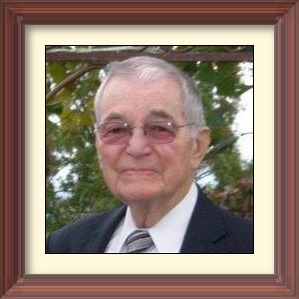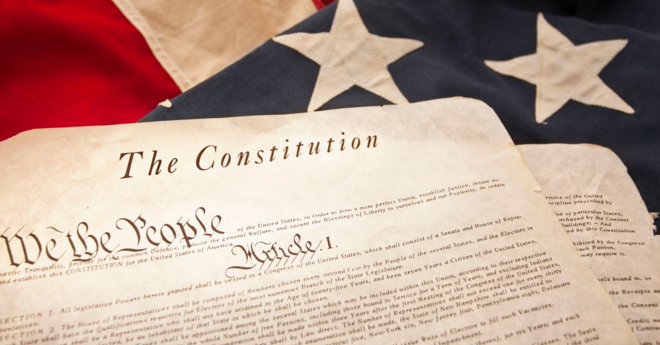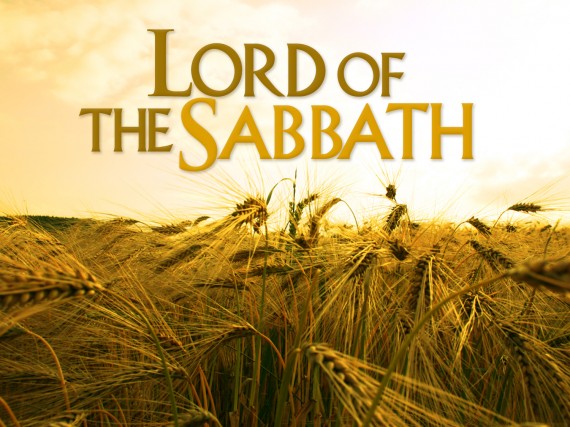 Articles in this section are from the past 6 to 12 months,
Articles in this section are from the past 6 to 12 months,
T he 1860 handbook, Etiquette at Washington, claims that: “every citizen of the United States who visits Washington considers that he has a claim to visit the Chief Magistrate of the Union.” It seems that average citizens did have such access. Etiquette at Washington reports that President James Buchanan “receives visits every day from eleven till one o’clock.” The etiquette for such a visit with the Commander in Chief was fairly strict. The 1860 handbook claims that a visit should never go beyond a handshake and commonplace niceties, and should never extend beyond six minutes – the President being a busy man.*
he 1860 handbook, Etiquette at Washington, claims that: “every citizen of the United States who visits Washington considers that he has a claim to visit the Chief Magistrate of the Union.” It seems that average citizens did have such access. Etiquette at Washington reports that President James Buchanan “receives visits every day from eleven till one o’clock.” The etiquette for such a visit with the Commander in Chief was fairly strict. The 1860 handbook claims that a visit should never go beyond a handshake and commonplace niceties, and should never extend beyond six minutes – the President being a busy man.*
Such access seems not so much a feature of the past, but the feature of an alternate universe. But there was no security detail assigned to the President then. Lincoln had not been assassinated yet. Andrew Johnson would be the first President protected by the Secret Service. Since 2002 the average citizen can’t even expect to take a tour of the White House short of a pass from one’s Senator.
As to any etiquette the average citizen is expected to observe regarding the President nowadays – that seems to be more a thing of the past than Presidential access. I was raised to respect the presidential office regardless of my opinion of the man occupying it. I have to admit I had a hard time being true to my raising twenty years ago when the Lincoln bedroom was being rented out to campaign donors. But I still believe that one should disagree with a man’s politics as strongly as free speech and good manners allow, but that we all lose when anyone disrespects the office. Sixty seconds on the internet, or listening to talk radio would be enough time for anyone to establish that I seem to be in the minority.
A startling contrast to the way things were in 1860, and the way things are in 2015 is this familiar passage from Hebrews 4.
Since then we have a great High Priest who has passed through the heavens, Jesus the Son of God, let us hold fast our confession. For we have not a high priest who cannot sympathize with our weaknesses, but one who has in every respect been tempted as we are, yet without sin. Let us then with confidence draw near to the throne of Grace that we may receive mercy, and find grace to help in time of need. Hebrews 4.14-16 RSV
All citizens of the kingdom are welcome to the throne of God. We are welcome 24/7/365 from now until time ceases to exist. We are welcome to stay as long as needed. As to etiquette, reverence is the natural attitude to take, but so is confidence – because we are welcomed there. Our interview need not be confined a few niceties – we are there to bare our souls, to open our hearts. We receive more than a handshake. We receive mercy and grace.
Jesus is the reason we enjoy these blessings of access, and connection. He alone makes them possible. He is our High Priest. During = the 1500 years of Mosaic Judaism, the High Priest alone had access to the Holiest Place in the Tabernacle, then the Temple. He went only once a year into the presence of God as a representative of God’s people. Jesus stands in the presence of the Father to welcome us in –all of us, every hour of every day.
This state of things is amazing. More amazing is how blasé we are about it – how little we make use of our access.
*I found this information in the wonderful, and now defunct magazine of the Library of Congress, Civilization: August/September 1996, p.35.
(He) had set his heart to study the law of Yahweh, and to practice it, and to teach His statutes and ordinances in Israel. Ezra 7.10
 Every Sunday morning, after the sermon, I walk to the back of the sanctuary. Every Sunday I look forward to a greeting by three of our elders, who shake my hand and give me a “good job,” and often a more hearty and approving assessment of the lesson. It is a blessing to get this kind of feedback. Last Sunday I received only two.
Every Sunday morning, after the sermon, I walk to the back of the sanctuary. Every Sunday I look forward to a greeting by three of our elders, who shake my hand and give me a “good job,” and often a more hearty and approving assessment of the lesson. It is a blessing to get this kind of feedback. Last Sunday I received only two.
Every Sunday morning our beloved brother and shepherd, Ron Higginbotham, would rise from his seat on the second row and come back to meet and greet visitors. Every Sunday we would exchange information: “Did you see that ____ is here today?” “Have you met the new family there on the right about half-way up?” Every Sunday he would give the sermon a grade. Sometimes I got a “good job,” sometimes an “A,” sometimes an “A+,” and sometimes I received a “that was a really good job!” I have always been desirous of good grades and worked hard each week to get a “really good job.” I can’t explain how much I missed my grade last Sunday, and will miss it from now on – how empty the aisle seemed (the whole auditorium seemed) without him in it.
Our family has experienced an enormous loss. We have lost a brother, a shepherd, a friend, a counselor, an encourager, a scholar, an attentive listener, a positive outlook, a beaming smile, a mentor, a patient disposition, a tireless worker, a thorough and rigorous student of the Word, a kindly and wise older brother, a spiritual warrior. To understand all we have lost with the passing of our brother is to simultaneously understand how blessed we have been by his being with us.
Back in 1997, when our family was at a low point, God sent four families to us in the span of three weeks – The Booths, the Coveys, the Ellenbergs, and the Higginbothams. All four men served this congregation as elder (Bill Booth, of course, still shepherds us). We cannot quantify how much we were given 18 years ago, but in assessing our loss we come to perceive something of God’s largesse.
I wish I could express to you all what a blessing it is for a preacher to have an elder whose knowledge of New Testament Greek exceeds his own (even though this preacher’s Seminary degree is in the Greek New Testament). How blessed one is to have someone older and knowledgeable who wants you to succeed, and who intends to keep your preaching accurate. But of course most all of us could begin a similar sentence: “I wish I could express how Ron blessed me by….” The line above from Ezra, to me, says it all – because it is not just about scholarship, but about the set of a man’s heart. It is about a man who loved God and God’s people as well as the study of God’s word – for whom scholarship was not just an academic exercise, but the very act of reconciling God and humanity. The Passage from Ezra 7 is about a man who believes that as we understand God’s word, and respond to it, we have life. This was our brother.
In the coming weeks we must be constant in prayer for Phyllis, Eric, Trici and the grandchildren. We must keep our church family in prayer. We must never for get to pray for our elders who shoulder the responsibility for our souls. We should thank God that this flock has been so well fed, so well led, so well nurtured, and so well instructed for so long.
Most of all we should remember God’s promises, and be thankful they are firm. These are the words God instructs us to remember and share while we wait to join those who are already home (I Thessalonians 4.13-18). Any separation we experience as God’s family is temporary. Our reunion will be eternal.
And (if) My people, who are called by My name humble themselves and pray, and seek My face and turn from their wicked ways, then I will hear from heaven, will forgive their sin, and will heal their land. II Chronicles 7.14 NASB
First of all, then, I urge men I urge that entreaties and prayers, petitions and thanksgivings, be made on behalf of all men, for kings and all that are in authority, in order that we may lead a tranquil and quiet life in godliness and dignity. I Timothy 2.1-2 NASB
 Let me say, at the beginning of this essay, that I believe in American Exceptionalism. I believe that the democratic experiment begun at the First Continental Congress, and which continues till this day has been uniquely successful. I believe that only one of the passages above applies to this exceptionalism. The other clearly does not apply. This distinction is the point of my argument. I believe that our inability to make this distinction will result in our ceasing to be a distinct people. We will become just so many other voices added to the angry cacophony of denominational protest.
Let me say, at the beginning of this essay, that I believe in American Exceptionalism. I believe that the democratic experiment begun at the First Continental Congress, and which continues till this day has been uniquely successful. I believe that only one of the passages above applies to this exceptionalism. The other clearly does not apply. This distinction is the point of my argument. I believe that our inability to make this distinction will result in our ceasing to be a distinct people. We will become just so many other voices added to the angry cacophony of denominational protest.
The United States Supreme Court will deliver a ruling on Gay Marriage this year, and although I have long ago stopped trying to predict what the Gang of 9 will do, I strongly suspect their decision will light up your twitter accounts, and explode all over your Facebook pages. The Court’s decision will certainly provide Christians with the opportunity of communicating in very un-Christian ways and at un-Christian decibel levels. It promises to be a win/win for Satan – unless we take a breath ahead of time and refuse him his pleasures.
I want to firmly communicate that the first quote above has nothing to do with the United States of America, or any other modern nation state. That Old Testament promise was given to Israel. If it applies to anyone in modern times it applies to Christians. The United States is not called by God’s name, nor is it identified as God’s people. Can we please stop misapplying this passage and others like it? Can we stop expecting God to keep promises He doesn’t make, to be in relationships He never intends?
The second passage explains how our country is exceptional. We are commanded to pray for our rulers. We are to do so that we may “lead a tranquil life in quietness and dignity.” Our nation has fulfilled this prayer as no other has in human history. For this we should thank God. For this we should thank every man and women who works to make this blessing possible. Every service person, every police officer, every first responder, every public servant that provides our “domestic tranquility,” often at great risk, deserves our constant gratitude. We are blessed to live in the United States of America and should say so.
I believe that our democratic experiment has been uniquely successful because of the Christian influence of the First and Second Great Awakenings. Saying that Christianity has had a positive influence is not the same as saying that America is a Christian nation. It isn’t, it will never be, and God has never called us to make it such. The Apostles went out to save souls, not to save the Empire. God has told us that we reside on earth as aliens (I Peter 1.1), and that our citizenship is in Heaven (Philippians 3.20). Paul exercised his full rights as a citizen of Rome to further the gospel, not to reform the Empire. We should follow that example.
I came to this understanding here, at Manassas. Men like Bill Booth, Paul Johnson, and Bill Powers, among others – men who have devoted their lives to serving this nation - have always reminded me that God is in control, that His Kingdom is always victorious, and that whatever happens I should stop hyperventilating. I thank them, and with this essay hope to share the same message with you.
 Flying upside down is uncomfortable. It’s hard to keep your feet on the rudder pedals, debris falls up (down) toward your face, and you struggle to adjust to your view of your instrument panel even though relatively speaking it is the same. Your eyes strain to the new orientation of the horizon and while all that is going on, the only faith you have not to fall down through the canopy toward the earth is the four strap harness holding your legs and shoulders firmly inside the cockpit.
Flying upside down is uncomfortable. It’s hard to keep your feet on the rudder pedals, debris falls up (down) toward your face, and you struggle to adjust to your view of your instrument panel even though relatively speaking it is the same. Your eyes strain to the new orientation of the horizon and while all that is going on, the only faith you have not to fall down through the canopy toward the earth is the four strap harness holding your legs and shoulders firmly inside the cockpit.
The purpose of taking student pilots up in the air and turning them upside down (among other things) is to give them a view of the new world they are about to operate in. It can be unnerving, confusing, and disorienting, but no less necessary if you want to become a military pilot. Carrying the cross of Christ requires a similar ability - the ability to take what is an old comfortable way to so many, and to turn that world upside down so that they too may get a new perspective on where their spiritual horizon is and the faith required to hold them there.
In Dietrich Bonhoeffer’s book, The Cost of Discipleship, he concluded, “The truth of the matter is that the whole world has already been turned upside down by the work of Jesus Christ.” Bonhoeffer may have drawn from the book of Acts where Luke makes reference to the same idea. In Chapter 17 we find Paul and Silas in Thessalonica where an angry mob from the synagogue of the Jews, after seeing all the conversions of Paul’s preaching, storm out to the house of Jason in hopes of finding them. Since Jason and some of the brethren were all they could find, the Jews dragged them out in front of the city authorities and said, “These men who have turned the world upside down have come here also.”
The Jews in Thessalonica felt their world was being turned upside down without realizing their view had been inverted all along. Turning the world upside down for those who cannot see Jesus is in actuality turning their world right side up, so that their view is now fixed on Him; up in the heavens, seated at the right hand of the Father. The Jews had the right concept; their world was being turned upside down so that they and others could see the Christ they had been looking for all along. Paul and the Apostles used the Gospel to turn the world upside down - we should be no less aerobatic.
The Sabbath was made for man, not man for the Sabbath. Mark 2.27
 When Jesus and his disciples are accused of breaking the Sabbath, Jesus can respond to the Pharisees in a variety of ways. He can quote the already rich tradition of the rabbis on the subject and get into a debate about that tradition. He can stick to scripture and demonstrate that technically, rubbing the husks off grain in your palms does not constitute “threshing” and thus does not violate the letter of the Law. But Jesus refuses to engage the Pharisees in this way – ever. Jesus refuses to either invest rabbinic tradition with normative force, or to use the Bible in the way the rabbis used it.
When Jesus and his disciples are accused of breaking the Sabbath, Jesus can respond to the Pharisees in a variety of ways. He can quote the already rich tradition of the rabbis on the subject and get into a debate about that tradition. He can stick to scripture and demonstrate that technically, rubbing the husks off grain in your palms does not constitute “threshing” and thus does not violate the letter of the Law. But Jesus refuses to engage the Pharisees in this way – ever. Jesus refuses to either invest rabbinic tradition with normative force, or to use the Bible in the way the rabbis used it.
What Jesus does is to use God’s law to identify, and to be obedient to God’s will. Reading the original command in Exodus 20.8-11 it is clear that God has given us an example of rest. Since He stopped working for a day and He expects us to stop. He expects us to provide ourselves, our children, our servants, and our animals a day of rest that we would be loath to provide apart from His command. He made the Sabbath for man (and beast). Jesus, in the passage cited above (Mark 2.23-28), provides the Pharisees an example from the Old Testament - David eating the consecrated bread of the Tabernacle - of someone in violation of the letter of the law, but not of the will of God. The Pharisees had make Sabbath keeping a burden, thus, though they respect the letter of the law, are violating the will of God. Jesus’ final point is that since He is the Son of Man (i.e. the Messiah) He is Lord of the Sabbath. Sabbath keeping is determined by the will of God. As God’s Messiah He is uniquely qualified to determine what it is and what it isn’t.
God is changeless (James 1.17). His laws have changed, though. They are age-appropriate. The sacrificial system of the Mosaic Law is completely inappropriate now that Jesus has sacrificed Himself once-for-all. Now we offer ourselves as living sacrifices (Romans 12.1-2). God’s laws are an expression of His will. We can litigate the letter of His laws and get everything wrong, or we can discern the will they communicate and live righteously.
Jesus really expands upon this way of reading scripture in the Sermon on the Mount. “You have heard that it was said, ‘You shall not commit adultery.’ But I say to you that everyone who looks on a woman to lust for her has already committed adultery with her in his heart,” (Matthew 5.27-28). If we see only the letter of the law then we end up arguing whether President Clinton was telling the truth about Miss Lewinski. But if we, like Jesus, use the letter to discern God’s will, we understand that it is wrong for a man to derive sexual pleasure from a woman who is not his wife - whether he uses his eyes, or other body parts.
This is not situation ethics. The way Jesus teaches us to read and apply scripture is all-encompassing. There are no loopholes in it. If we understand God’s law this way then we see no contradiction between His command that the Israelites not mingle with other nations (Deuteronomy 7.3), and His welcoming Rahab, and Ruth into the faith community, and the lineage of Christ. If we understand God’s law this way we see, as Jesus does, that it was right for David to eat the consecrated bread. If we understand God’s law this way there can be no loophole for sin, no rationalization that it is okay to break the spirit of the law because we haven’t broken the letter of it.
Jesus teaches us to read the Bible a certain way. Our alternatives are to extend moral license, or to insist we all be lawyers. I prefer Jesus’ way.

